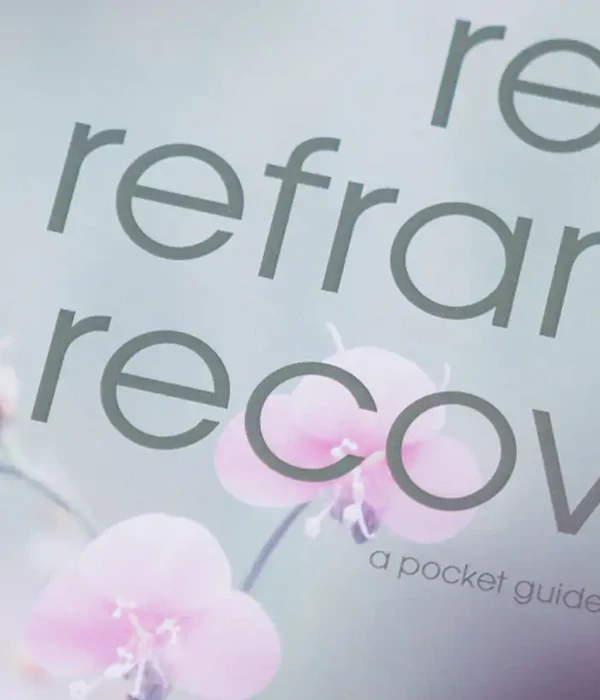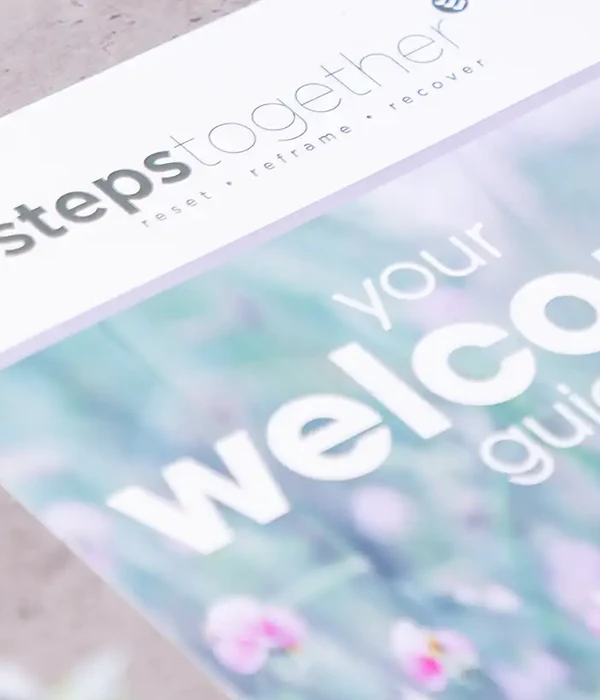Psilocybin Addiction Treatment
Psilocybin, a compound found in certain mushrooms, has shown some promise in treating some mental health conditions. Despite this possible therapeutic use, there are still those who may find themselves misusing the drug as the effects of psilocybin and similar psychedelics can foster addiction.
Psilocybin addiction treatment may combine severe forms of psychotherapy, detox, and inpatient and outpatient programmes. These hallucinogen rehab programmes can help you or your loved one overcome addictive substances and live a healthy, sober life.

Take the First Step Towards Recovery
Steps Together offers personalised support and proven treatments, providing the care, guidance and encouragement you need to move forward with confidence and build a healthier future.

Understanding Psilocybin
Psilocybin is a naturally occurring psychedelic compound found in over 180 species of mushrooms, often referred to as ‘magic mushrooms.’ Once ingested, psilocybin is converted in the body to psilocin, which interacts with serotonin receptors in the brain.
It is classified as a hallucinogen and may cause visual distortions, emotional fluctuations, and a sense of detachment from reality. While it has a history of recreational use, emerging research suggests psilocybin may have therapeutic potential, particularly in treating addiction, depression, and anxiety, but has no currently accepted medical use.
History of Psilocybin Use
Magic mushrooms have been used for centuries in spiritual and healing practices, particularly by indigenous cultures in Central and South America. Historical records and archaeological findings reveal that psilocybin-containing mushrooms were central to religious ceremonies, often used to promote healing, insight, and connection to the divine.
Scientific interest in psilocybin began in the 1950s, as researchers explored its effects on consciousness and mental health. However, legal restrictions in the 1970s significantly slowed progress. In recent decades, renewed interest has sparked new studies, especially in the treatment of depression, addiction, and anxiety.


Psilocybin as a Psychoactive Compound
Psilocybin works by interacting with serotonin receptors in the brain, which influences mood, perception, and cognition. This interaction is believed to help ‘reset ‘ harmful thought patterns, making it potentially useful for people struggling with addiction. The effects usually begin within 30 to 60 minutes after a dose of magic mushrooms.
Users often report altered sensory perception, emotional shifts, and heightened self-awareness. Some describe the experience as gaining a new perspective or deep insight into personal issues, which can support emotional healing and behavioural change when combined with professional therapeutic guidance.
Psilocybin Addiction Treatment
Addiction recovery blends medical and psychological support to target both brain chemistry and learned behaviours. Psilocybin addiction treatments often include therapy approaches proven to help people change habits, process trauma, and build skills needed to maintain sobriety. Treatment options for psilocybin use include:
CBT
Cognitive Behavioural Therapy (CBT) is a structured and goal-oriented therapy. You work with a therapist to identify thoughts and behaviours driving addiction. By noticing triggers and automatic negative thoughts, you can learn to replace harmful patterns with healthy ones.
CBT helps you build coping skills for stress and cravings. It encourages you to challenge irrational beliefs and focus on solutions, not just problems. For those using psilocybin or in recovery, CBT offers tools to manage psychological effects and avoid relapse.
EMDR
Eye Movement Desensitisation and Reprocessing (EMDR) is a therapy designed to treat trauma-related symptoms. Trauma and past negative experiences can play a big role in substance use. EMDR can help process these memories without long discussions of the trauma itself.
You will recall distressing events while following the therapist’s hand or a light with your eyes. This process appears to help your brain reprocess emotional memories, making them less troubling. EMDR is effective for people with post-traumatic stress disorder (PTSD), which often overlaps with addiction.
DBT
Dialectical Behaviour Therapy (DBT) was developed to help people who experience intense emotions, self-harm, or suicidal thoughts. It combines cognitive-behavioural skills with mindfulness and acceptance strategies.
In psilocybin addiction treatment, DBT teaches you how to manage urges, tolerate difficult situations, and regulate your emotions. The therapy is highly structured: you’ll usually learn skills in four main areas, mindfulness, distress tolerance, emotion regulation, and interpersonal effectiveness.
Motivational Interviewing
Motivational Interviewing (MI) focuses on increasing your motivation to change. Rather than telling you what to do, the therapist works collaboratively, guiding you to talk about your reasons for seeking treatment.
MI uses open questions, reflective listening, and affirmations. You’ll explore the risks and benefits of your substance use, helping you resolve ambivalence. This makes MI especially helpful if you are contemplating change but feel uncertain or resistant.
Other drug addictions we treat at our rehab centre

Safety, Legal, and Ethical Considerations
Psilocybin has shown promise in treating addiction, but concerns remain about its safety, legal status, and ethical use. Psilocybin can cause a range of mental and physical effects. Common short-term side effects include nausea, dizziness, and headaches. You may also experience changes in mood, increased heart rate, or trouble with coordination.
More serious reactions to psilocybin can include intense anxiety, paranoia, or even psychosis, particularly in individuals with a personal or family history of mental illness. Hallucinations can happen and may be unsettling. In some cases, the experience can become overwhelming and emotionally distressing without proper support or supervision.
Adverse Events and Mitigation
Adverse events can occur, especially without proper medical oversight. These may include severe anxiety, panic attacks, or episodes of psychosis. Accidental injury can happen if you act unpredictably during hallucinations.
Ethical care also involves clear communication, respect for your autonomy, and ensuring you fully understand the potential risks and benefits before taking part in treatment. Professionals must follow strict standards and maintain patient safety as their highest concern.

Using Psilocybin Mushrooms in Treatment
Psilocybin therapy is being studied as a treatment for alcohol use disorder (AUD). Clinical trials have shown that when psilocybin is used alongside psychotherapy, people with AUD may experience fewer heavy drinking days and longer periods of abstinence.
Psilocybin has also been tested for tobacco addiction and smoking cessation. Small studies have shown that guided psilocybin sessions, combined with behavioural therapy, can increase quit rates.
The therapy is often combined with counselling or psychotherapy to help you address the thoughts and emotions related to substance use. The treatment may lead to a change in perspective, increased motivation to quit, and a stronger commitment to recovery.
Rehab for Psilocybin
Psilocybin rehab treatment aims to help you stop unhealthy psilocybin use, manage withdrawal, and address any mental health concerns, such as depression or anxiety. Psilocybin addiction treatment options include:
Detox
Detox helps your body clear psilocybin safely before formal psilocybin addiction treatment begins. You may not face strong physical withdrawal symptoms with psilocybin since it usually does not cause the same dependence as alcohol or opioids.
Medical supervision during detox ensures your safety, especially if you have a history of other substance use, mental illness, or severe distress. In some cases, detox may also involve discussing your expectations and plans for long-term recovery with addiction counsellors.
Aftercare
Aftercare is essential to maintain progress after your primary treatment finishes. Ongoing care reduces the risk of relapse and supports mental health recovery, especially if you have depression, anxiety, or other long-term conditions.
You may attend weekly or monthly therapy sessions, join support groups, or work with a case manager. These services help you handle the triggers and stresses of daily life. Aftercare might also involve family therapy or peer support for ongoing encouragement.
Inpatient and Outpatient Rehab
Inpatient rehab often uses daily therapy sessions, medication management (if needed), and group activities. You will work with psychiatrists and therapists experienced in addiction and mental health care.
Outpatient rehab lets you live at home and visit the treatment centre for scheduled therapy sessions. This option may be right if symptoms are less severe or you have strong social support.

Magic Mushrooms Don't Have to Control Your Life
While psilocybin can have therapeutic effects in controlled settings, unsupervised or frequent use can lead to psychological dependence and troubling experiences that may feel overwhelming. However, addiction isn’t a life sentence; it’s a challenge that can be overcome with the right support.
At Steps Together, we provide psilocybin addiction treatment tailored to your needs. Our drug rehab programmes offer therapy, guidance, and ongoing support to help you regain control, address the underlying causes of use, and take your life back from the grip of addiction.
Frequently Asked Questions
What are the common approaches to treating addiction to psychedelic substances?
Most treatment programmes focus on therapy, patient education, and providing a safe environment. You might take part in individual counselling or group sessions. Treatments also often include relapse prevention strategies and building healthier stress responses.
Can you detail the risks involved with the unregulated use of psychoactive substances for self-medication?
Using unregulated substances puts you at risk of taking dangerous dosages or contaminated products. Self-medication may also worsen mental health symptoms or delay proper treatment. Unregulated use is linked to legal trouble and unpredictable physical or psychological effects.
How does cognitive behavioural therapy assist in the rehabilitation from psychedelic drug use?
Cognitive behavioural therapy helps you recognise and change thought patterns that lead to drug use. You learn to handle triggers and cravings through practical exercises and discussions. CBT can be combined with other support systems and is effective for building long-term habits that reduce relapse.
How does psychological support play a role in overcoming hallucinogen dependency?
Psychological support can give you coping skills and guidance to manage cravings or triggers. Talking therapies, especially with experienced professionals, help you process the reasons behind substance use and practise new behaviours. Support systems, such as family or peer groups, provide extra motivation and encouragement.
What legal treatments are available for individuals with a history of substance misuse?
Legal treatments include individual therapy, group therapy, and medically supervised detox. In the UK, these are offered through the NHS and private clinics with a focus on rehabilitation. There are no approved psilocybin medications for addiction, but clinical trials may be available.
What are the potential side effects of clinical interventions for hallucinogenic addiction?
Some people may experience temporary anxiety, mood swings, or sleep difficulties as they adjust. Medication, if prescribed for co-occurring disorders, can have its side effects, such as headaches or nausea. Clinical monitoring reduces risks, but it is important to discuss all symptoms with healthcare providers so they can help you manage any unwanted effects.





